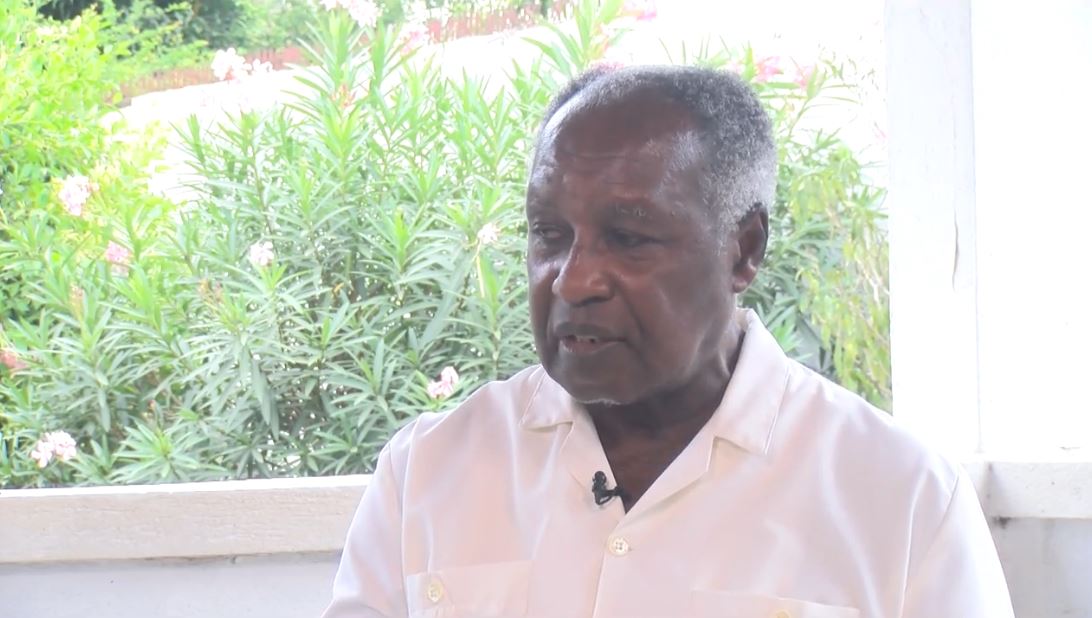DISCUSSION: Should Africa Abandon British Curriculum For STEM Education?


Education remains the bedrock of any nation. Many decades after British colonies in Africa regained their independence, they continue to rely on the British curriculum. However, there is a sudden realization that the British curriculum may be responsible for Africa’s underdevelopment.
The reason is that it doesn’t prepare students for the technological realities of the 21st century. Rather, students end up learning a bunch of subjects that have lost relevance in the modern world. Hence, many are asking, should Africa abandon the British curriculum for STEM? What are the benefits that will likely come out of it?
One African country already stands out for promoting STEM education. In Ghana, more STEM schools are emerging, particularly those dedicated to the training of girls. How has the country fared in this regard and what do the students think about the new academic curriculum?
ALSO READ: Ghana Joins A Growing List Of Countries Calling For Slavery Reparation. See Why
What is the British Curriculum?

The British curriculum makes a bunch of subjects compulsory for students. This includes English, Mathematics, Design and Technology, Science, Geography, History, Music, Art and Design, Computing, Physical Education, and Ancient and Modern Foreign languages.
In addition to detailing the subjects that should be taught, the British curriculum also mentions the standard the students should attain in each subject. Therefore, these subjects are organized into ‘Key Stages’ (KS).
Education according to the British Curriculum is only compulsory for 5 years. However, most schools have a structured preschool program that is modeled on the Early Years Foundation Stage Framework (EYFSF). So, in the British curriculum, it appears students are forced to learn a lot of what they ‘really don’t need’.
What is STEM?
STEM is an acronym that represents science, technology, engineering, and mathematics. The STEM curriculum is centered around these fields. The term was first introduced in the United States in 2001 by U.S National Science Foundation (NSF) scientific administrators. However, at that time the organization called it SMET.
Later that year, Judith Ramaley, an American biologist who was NSF assistant director of education and human resources rearranged the words to STEM. Eventually, STEM-focused curriculum was exported outside of the United States. Some of the countries that have developed STEM programs include the United Kingdom, South Korea, Taiwan, France, China, and Australia.
Why was STEM education developed in the United States?

To understand the dire need for Africans to drop the British curriculum for STEM, it is important to look at the reason why STEM was introduced in the United States. At the beginning of the 21st century, there were lots of publications that highlighted the connection between STEM fields with knowledge-intensive jobs and prosperity.
The most important of such publications was “Rising Above the Gathering Storm (2005) by the U.S National Academies of Science, Engineering, and Medicine. The report at that time predicted a dire consequence if the U.S workforce are poorly prepared to compete globally. The STEM fields were identified as critical to ensuring the prosperity of the United States.
ALSO READ: World Teachers Day 2022: Top 10 Countries With The Best Education System In Africa
In the years that followed, many other countries also adopted STEM education to prepare their workforce for future jobs. The growth of STEM jobs in the United States tripled from 2000 to 2010 when compared to non-STEM jobs.
What is STEAM education?
Some academics questioned the exclusion of arts from STEM education. STEAM is an acronym that stands for “Science and Technology, interpreted through Engineering and the Arts, all based in Mathematical elements”.
The focus of STEAM is to provide a framework that highlights the relationship between different fields instead of treating them as separate units. Proponents of STEAM argue that it makes learning more fluid and allows students to learn how the different fields depend on each other.
STEAM was introduced in 2006 by researcher Georgette Yakman based on her experience while working in education. According to Yakman, it is vital to incorporate innovation and creativity which is prevalent in arts into STEM education.
Ghana is building the largest STEM schools in Africa
Ghana is moving away from the British curriculum for STEM education. Consequently, the Ghanaian government has built the largest STEM school in the country. Some of the schools were designed solely for girls while others were mixed. Defending the building of STEM schools’ Ghana’s Education Minister Hon. Dr. Yaw Osei Adutwum said,
“Tony Blair just wrote a piece talking about the fact that the British education system is not fit for the 21st century. Before the speech, we have been talking about the fourth industrial revolution and the need to tweak our high school curriculum to ensure that we meet the goals of the 21st century.”
The STEM schools cropping up in Ghana adds to the free high school intervention already operational in the country. These interventions by the government create more opportunities for young boys and girls to get quality education comparable to everywhere else across the globe.
ALSO READ: Returnee Spotlight: How Peagie Foday Is Giving Sierra-Leonean Women A Second Chance At Education
“In the 21st century, it is no longer about going to school.” Dr. Adutwum said. “What you study while going to school is so critical”.
The Ghanaian minister rightly pointed out that the age of a school doesn’t mean the school will automatically perform better. He also shockingly revealed that there are only 54 high-performing high schools in Ghana.
The STEM high school built in the Ashanti region is a boarding school for girls. The school has played host to various dignitaries from around the world. A delegation from Belgium visited the school and gifted the school robotic kits.
Ghana is also taking the issue of education more seriously. Dr. Adutwum revealed during an interview with AS 1 media that schools will no longer be allowed to open in Ghana if they don’t have fully functional libraries. Sharing her view on the experience of the STEM school, one of the students said,
“I feel blessed and privileged to be in this school. This school has lots of equipment. Everything about this school is modern. Just superb. I don’t feel like going home anymore.”
Building ultramodern STEM schools may not be enough

So far six STEM schools have been announced by the government to improve the study of sciences in the country. This includes Kpasenkpe STEM School, Abomosu STEM School, STEM Center at Accra Senior High School, Bosomtwe Girls STEM School, and TVET School at East Legon.
The government has also begun the development of 10 model STEM Senior High Schools and 20 STEM centers across the country. They are currently at different stages of completion. Although many consider it a laudable effort, some educationists have faulted the spending on building STEM schools.
One of the strong critics of the STEM schools is Professor Ivan Addae Mensah, the ex-Vice Chancellor of the University of Ghana. Criticizing the building of STEM schools during an interview with Joy Online, the emeritus professor said, “This is one of the clear examples of jumping into schemes simply for the novelty without thinking the implications through”.
Prof Mensah believes it would have been better to maximize the schools that were already in existence. He believed the government was just building new schools to score political points.
Others have raised concerns about training teachers that will manage the facilities. While building new facilities is commendable, the aim will not be achieved if there are no qualified teachers to use the facilities and translate the knowledge to the students.
Do you think Ghana is ready for STEM education? Let us know your thoughts in the comment box below.







Responses